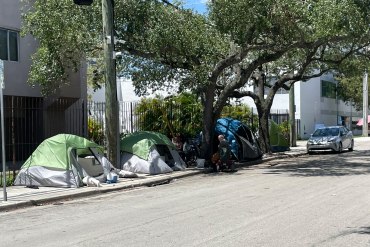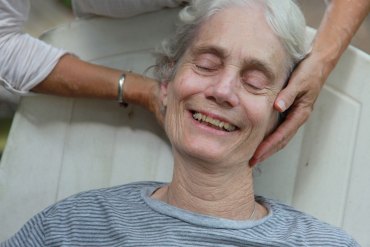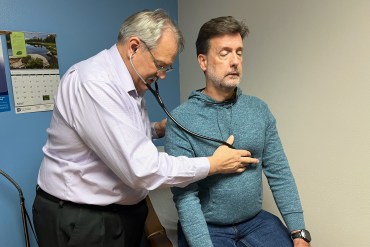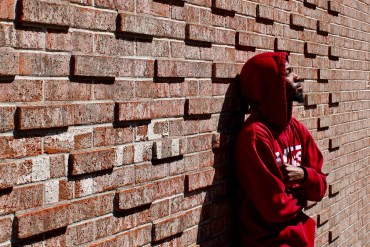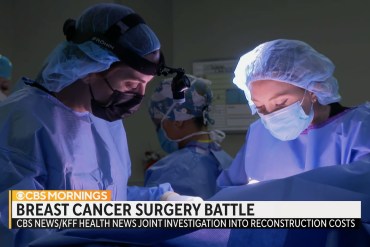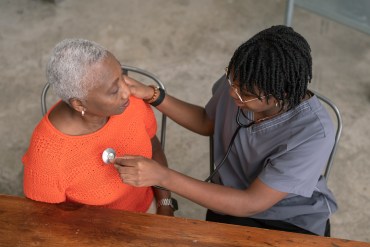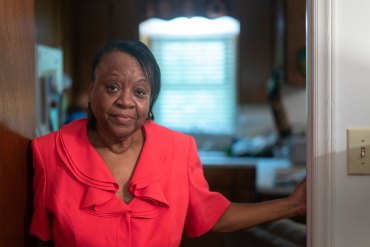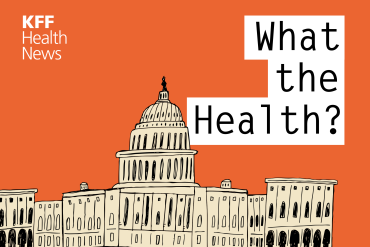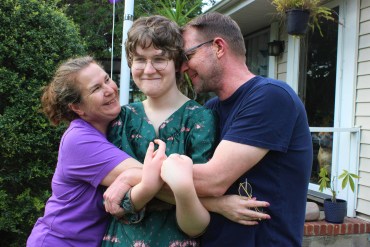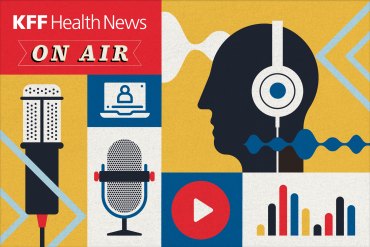Fraudsters Are Duping Homeless People Into Signing Up for ACA Plans They Can’t Afford
Homeless people are being fraudulently enrolled in health plans on the Affordable Care Act’s marketplace, induced with cash payments from insurance agents and brokers. Those who sign up for an ACA plan are disqualified from other forms of free and low-cost care and risk disruption in treatment.
Biden Admin Implores States to Slow Medicaid Cuts After More Than 1M Enrollees Dropped
Secretary of Health and Human Services Xavier Becerra is asking states to make more of an effort to keep eligible Medicaid recipients enrolled. He particularly fears children losing health insurance coverage.
Massage Therapists Ease the Pain of Hospice Patients — But Aren’t Easy to Find
The pandemic disrupted the massage industry. Now those who specialize in hospice massage therapy are in demand and redefining their roles.
Burnout Threatens Primary Care Workforce and Doctors’ Mental Health
Burnout is a widespread problem in the health care industry. Although the pandemic made things worse, burnout among doctors is a long-standing concern that health systems have become more focused on as they try to stop doctors from quitting or retiring early.
As Fewer MDs Practice Rural Primary Care, a Different Type of Doctor Helps Take Up the Slack
The number of DOs is surging, and more than half of them practice in primary care, including in rural areas hit hard by doctor shortages.
The Gun Violence Epidemic Is ‘Locking Us Back in Our Room’
As the leading cause of death for teens, firearm injuries are detrimental to more than just physical health. It takes a major toll on young people’s mental health.
As Medicaid Purge Begins, ‘Staggering Numbers’ of Americans Lose Coverage
In what’s known as the Medicaid “unwinding,” states are combing through rolls to decide who stays and who goes. But the overwhelming majority of people who have lost coverage so far were dropped because of technicalities, not because officials determined they are no longer eligible.
How a Medical Recoding May Limit Cancer Patients’ Options for Breast Reconstruction
The federal government’s arcane process for medical coding is influencing which reconstructive surgery options are available, creating anxiety for breast cancer patients.
Mood-Altering Mushroom Sales Bloom Despite Safety Concerns
The well-known “Amanita muscaria” mushroom is legal to possess and consume in 49 states. The market for gummies, powders, and capsules containing extracts of the fungus is raising eyebrows, though, amid concerns from the FDA and in the absence of human clinical trials.
Cardiovascular Disease Is Primed to Kill More Older Adults, Especially Blacks and Hispanics
Cardiovascular disease is the biggest killer of older Americans, with Black and Hispanic people at higher risk. Despite medical advances, researchers say, disparities are expected to worsen in the coming decades.
Many People Living in the ‘Diabetes Belt’ Are Plagued With Medical Debt
The “Diabetes Belt,” as defined by the Centers for Disease Control and Prevention, comprises 644 mostly Southern counties where diabetes rates are high. Of those counties, KFF Health News and NPR found, more than half also have high levels of medical debt.
La enfermedad cardiovascular podría matar a más adultos mayores hispanos
El dramático envejecimiento de la población de Estados Unidos y el número creciente de personas con afecciones como hipertensión, diabetes y obesidad —que aumentan el riesgo cardíaco— se espera que contribuyan a este escenario alarmante.
A Catch-22 for Clinics: State Bans Limit Abortion Counseling. Federal Title X Rules Require It.
Family planning clinics are getting caught between state abortion bans and a federal requirement to refer patients for abortion care on request.
What the Health? From KFF Health News: When an Anti-Vaccine Activist Runs for President
Robert F. Kennedy Jr.’s official entry into the presidential race poses a thorny challenge for journalists: how to cover a candidate who’s opposed to vaccines without amplifying misinformation. And South Carolina becomes the latest state in the South to ban abortion after roughly six weeks of pregnancy. Alice Miranda Ollstein of Politico, Rachel Cohrs of Stat, and Sarah Karlin-Smith of the Pink Sheet join KFF Health News chief Washington correspondent Julie Rovner to discuss these issues and more. Also this week, Rovner interviews KFF Health News senior correspondent Aneri Pattani about her project to track the billions of dollars coming from opioid makers to settle lawsuits.
A Trans Teen No Longer Feels Welcome in Florida. So She Left.
Josie sensed Florida lawmakers were threatening her health care and ability to be herself at school. So she left. Families of other trans youth are plotting exits as well.
A Striking Gap Between Deaths of Black and White Babies Plagues the South
Infant mortality rates across the South are by far the worst in the U.S. A look at South Carolina — where multimillion-dollar programs aimed at improving rates over the past 10 years have failed to move the needle — drives home the challenge of finding solutions, especially in rural communities.
Journalists Unpack Facility School Closures and Federal Investment in Crisis Hotlines
KFF Health News and California Healthline staff made the rounds on national and local media this week to discuss their stories. Here’s a collection of their appearances.
Remote Work: An Underestimated Benefit for Family Caregivers
The debate about whether employees should be required to return to the workplace has generally focused on commuting, convenience, and child care. A fourth C, caregiving, has rarely been mentioned.
When Older Parents Resist Help or Advice, Use These Tips to Cope
Dealing with a stubborn or resistant older parent can be a difficult problem for adult children. Family caregivers and professionals have some hard-won lessons on how to manage these evolving relationships.
Tips para ayudar a los padres mayores que se resisten a recibir ayuda o consejos
Lidiar con un padre mayor que se resiste obstinadamente a aceptar ayuda no es fácil. Pero la solución no es que los padres sientan que se está pasando por encima de ellos, tomando el control de sus asuntos.




